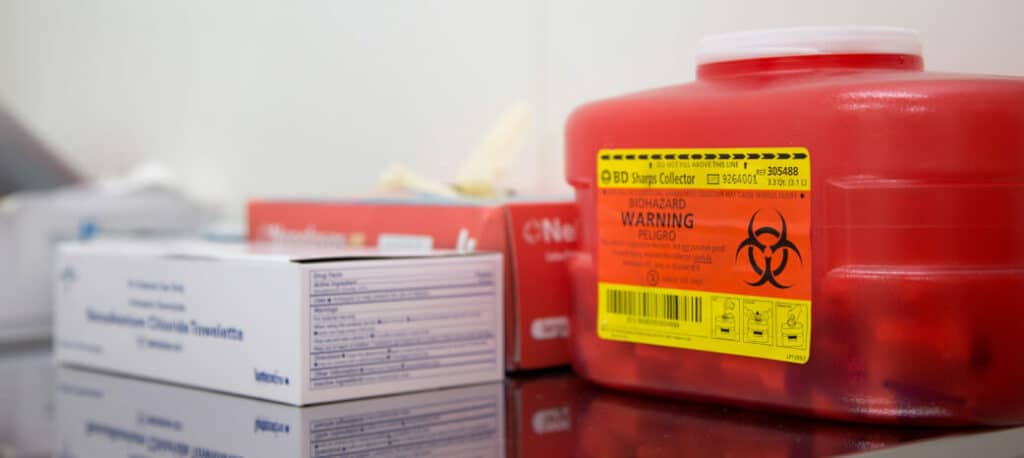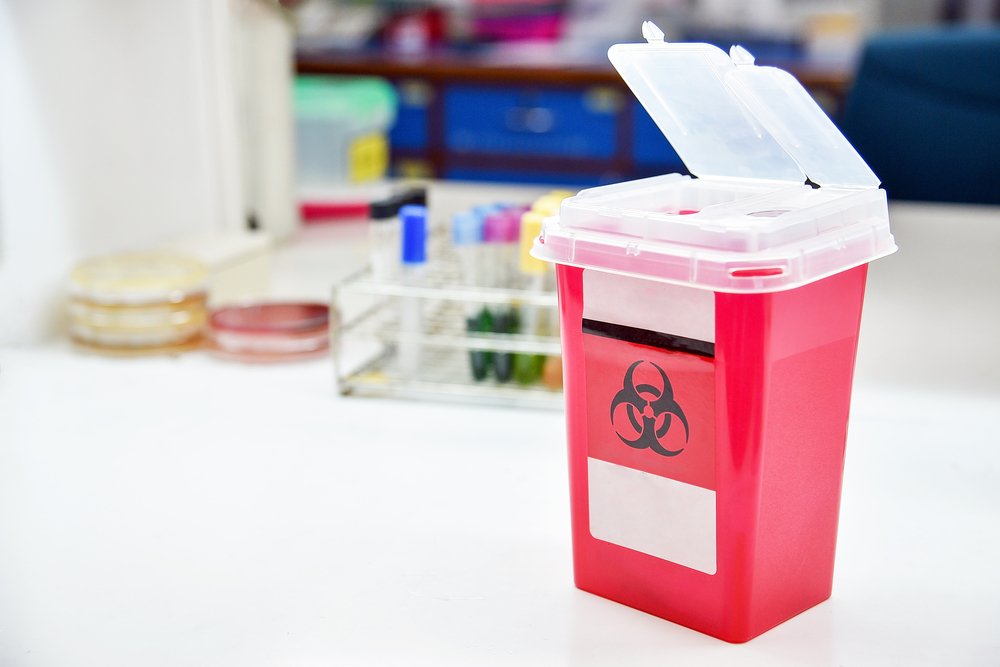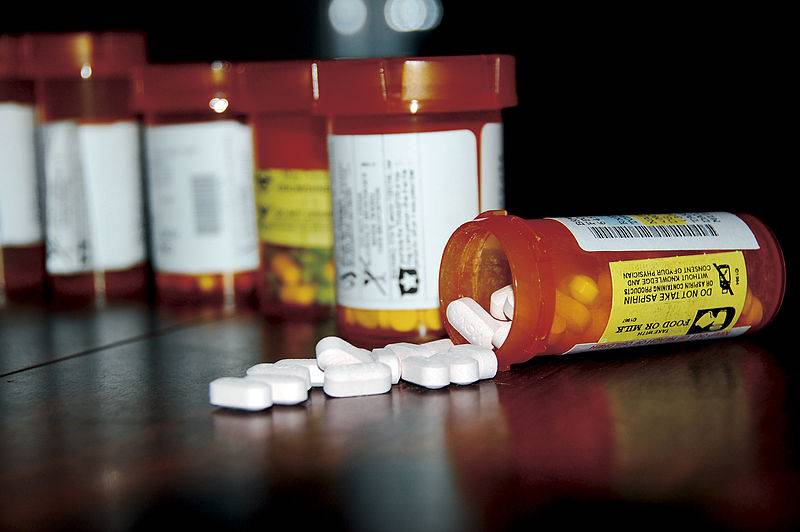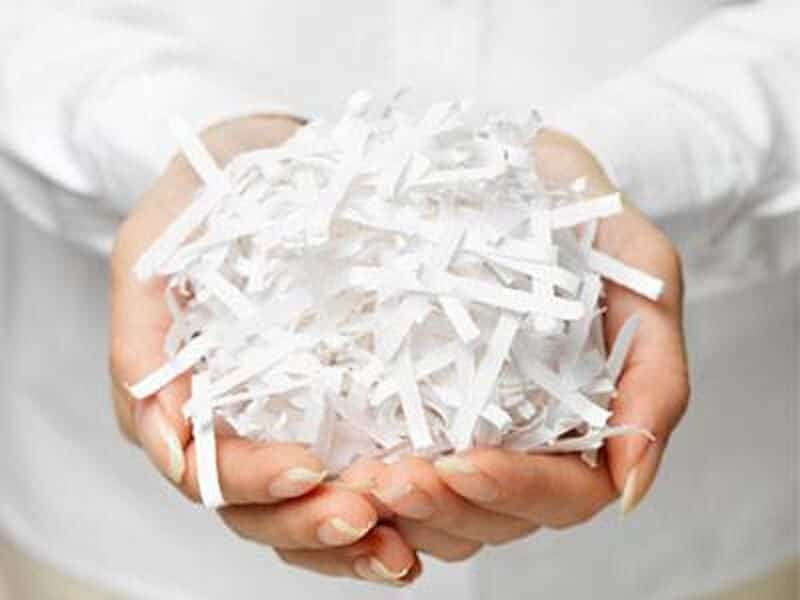Medical Waste Disposal Charlotte, NC
MedPro Disposal helps healthcare providers in Charlotte, NC save an average of 30% on their medical waste disposal.
Charlotte, North Carolina Medical Waste Disposal Services
MedPro Disposal offers medical waste disposal, infectious sharps waste management, OSHA compliance training including bloodborne pathogens training and certification, and HIPAA-compliance document shredding and data destruction services. MedPro Disposal keeps your practice safe and compliant so you can focus on what matters most, your patients.
Industries We Service
Take the MedPro Disposal challenge!
See how much MedPro Disposal can save your practice!
It’s Easy to Get Started With MedPro Disposal

Contact Us
Contact MedPro Disposal for a fast, free medical waste removal quote. We’ll get to know you, discuss your needs, and settle on a number. You may be surprised at how much you can save on medical waste disposal with MedPro Disposal.

Waste Pickup Date
Work with MedPro Disposal to determine your first pickup date. We’ll confirm your office hours and provide convenient options for medical waste and sharps pickup.

Compliance Survey
Complete a compliance survey. After we get to know your requirements, we’ll send you a survey to identify any areas that need to be brought up to OSHA standards.
All three steps occur at no additional cost to your practice. You’re on your way to safe, affordable, compliant medical waste removal!
Contact MedPro Disposal Today for a Fast, Free Quote!
Charlotte, NC
Charlotte is the largest city in North Carolina and one of the biggest 25 cities in the United States. According to a recent census estimate, Charlotte has an estimated population of almost 1.5 million people. The largest city in North Carolina is located in the southern part of the state; in fact it is near the South Carolina border. The city takes its name from Charlotte Sophia of Mecklenburg-Strelitz – the wife of England’s King George III.
Charlotte was made a city in 1768 and then later made a county in 1774. From 1837 to 1913 the city was the biggest hub for gold production in the United States. It was also the last meeting place of the full Confederate cabinet. Today Charlotte is the second largest banking hub in the United States and home to two of the nation’s top banks – the Bank of America and Wells Fargo (formerly Wachovia). Other popular employment sectors are healthcare, technology, communication and education. Charlotte is also known for the University of North Carolina as well as Carolina Panthers.
Over the recent years, Charlotte has been in the news for its major contributions to the U.S. financial markets. In fact, it is the second largest banking city after New York City. Banking isn’t the most popular sector in Charlotte. 10 of the most exciting Fortune 500 companies are either headquartered here or have corporate operations.
Charlotte also has the highest concentration of hospitals in North Carolina. The presence of seven hospitals and other various dental and pharmaceutical facilities increases the demand for medical waste disposal companies.
| Practice Type | Zip Code | Projected Annual Savings |
|---|---|---|
| Health Care Clinic | 28206 | $86 |
| Dentist | 28227 | $1,000 |
| Family Practice | 28227 | $588 |
Find Out How Much You Can Save Instantly
Try our on-line savings calculator.

Medical Waste Disposal Charlotte, NC
Local hospitals, doctor’s offices, outpatient surgical centers, medical labs, veterinary clinics, nursing and pharmaceutical facilities require biohazard waste disposal. Considering the large number of healthcare facilities functioning in Charlotte today, it can be very difficult to choose the right medical waste disposal company.
According to Section 1200 of medical waste management guidelines issued by the North Carolina Department of Environment and Natural Resources (NCDEQ), medical waste is defined as any solid waste that is generated in the diagnosis or treatment of humans, animals, or in research pertaining to patients or in the testing and production of biological agent.
The definition of medical waste includes but is not limited to:
- Blood and body fluids such as serum, plasma, blood products, spinal fluid and liquid blood. Products of dialysis are not included under this definition.
- Blood soaked bandages
- Culture dishes
- Needles, syringes and other glassware used in diagnosis or in the production and testing of biological products
- Discarded lancets, swabs, surgical gloves and other instruments
- Medical sharps and discarded needles used to draw blood or give shots
It is important that the medical waste management company you choose offers you a trusted service more importantly, at an affordable price. MedPro Disposal is compliant with all state and local procedures and we make certain that each and every one of our customers get the finest quality service at the best price.
Why Medical Waste Management is Important
Medical waste contains biological products that can be highly infectious. It is important that waste generated from healthcare facilities is disposed properly to prevent health and environmental threats. All hospitals, laboratories, research centers and vet clinics need medical waste management to prevent spread of diseases.
Bins and trash cans in medical facilities & physician offices can become a source of infection if not emptied correctly. Remember hospital waste can contain microorganisms which pose a serious threat to the staff and other patients if safety regulations are not followed.
Public awareness related to healthcare waste has grown over the past few years. Most consumers know that medical sharps, used surgical instruments and blood soaked bandages could transmit hepatitis virus and other agents associated with blood borne diseases.
Why Choose MedPro
MedPro Disposal offers waste management services for the healthcare industry including surgical centers, cancer care facilities, and dental care units. In addition to state-of-the-art and regulated services, MedPro Disposal has customized plans to meet all your medical waste management needs.
Effective medical waste disposal is the first and foremost step to prevent the spread of infection and unwanted diseases. It is also imperative that medical waste is disposed of without polluting the environment. MedPro Disposal offers effective waste management services and has a tracking system from start to finish. This means you no longer have to worry about disposing body fluids, unused and expired pharmaceuticals, and medical sharps that are produced in the healthcare industry.
MedPro Disposal is your best medical waste management solution. We provide effective waste disposal services for:
- Expired and unused pharmaceuticals, they can be prescription or non-prescription (i.e. over-the-counter) for humans and pets.
- Sharps including lancets, syringes and needles used in the diagnosis of a variety of medical conditions
- Infectious wastes featuring body fluids such as (blood, excretory products) and other infectious materials such as pathogens.
MedPro Disposal specializes in medical waste management ensuring compliant treatment and disposal of biohazards from healthcare units across Charlotte. Our services are regulated and the flexibility of waste collection schedule ensures that our service will not be interrupted. Our customers across the US choose us because we can provide the assurance of tracking waste disposal from start to finish.
We have years of experience to protect you and our flexible collection schedule gives you a peace of mind and you’ll know what we’re always there when it counts the most.
When you choose MedPro Disposal, you will be convinced that you have chosen an experienced company with state-of-the-art services and expertise you can trust. If you have any questions regarding our services get in touch with our team today.
With diverse and flexible service offerings, we can expertly accommodate all your specialty medical waste disposal needs. And don’t forget that we’re just one call away!
Charlotte, North Carolina’s Medical Waste Management
Also known as the Queen City, the fastest growing metro is known for its research and financial industry. The city houses the headquarters of the eastern operations of Wells Fargo, and the headquarters of Bank of America and Truist Financial. To a lot of sports fans, the city is rather bustling for being home to the Carolina Panthers, Charlotte Hornets, and several NASCAR-related attractions – including the NASCAR hall of fame.
The city has incredibly accessible infrastructures. Upon visiting their website, they local government immediately offers access to various services that the location offers such as:
- Bus/Train transit schedules
- Online payment of water bills
- Pet adoption
- Police resources
- Job searches for employment/career opportunities around the city
- Trash pick-up schedule
From the onset, the city presents itself as one that is incredibly organized. And apart from the thriving districts and the beautiful location that is the city’s skyline area famously known as the “uptown”, there is a movement in Charlotte for better healthcare.
What’s the state of healthcare in Charlotte?
The biggest healthcare system in Charlotte is Carolinas HealthCare, which is a non-profit hospital group that comprises over 50 hospitals that extends beyond the borders of the United States.
Because of the city’s relatively infant healthcare environment, the Carolinas HealthCare has launched efforts to encompass even the mental care industry; by integrating psychiatrists in primary care practice. The gaps in the city’s hospital systems too are being aided by the HopeWay Foundation in an attempt to expand on mental illness treatment.
As for the amount of healthcare professionals in the area, there has been a slow movement towards building my healthcare practitioners. Novant Health’s introduced residency training and CarolinasHealthCare operates a regional campus called the UNC School of Medicine Charlotte Campus. These are very critical towards improving the sustainable supply of healthcare professionals in a city as big as Charlotte.
How can current hospitals improve the current health environment?
Prevention is always better than cure. One of the ironic but inherent repercussions of having healthcare facilities is that these places, without proper sanitation and medical waste disposal, can become breeding grounds for sickness.
The World Health Organization identified the hazards of having unsafe medical waste disposal. These including but not limited to the fact that:
- They contain infectious agents.
- They can be genotoxic.
- They contain toxic or hazardous chemicals or pharmaceuticals.
- They can be radioactive.
- The waste could contain sharps or contaminated sharps.
One of the more common injuries related to medical waste stem from the improper medical sharps container disposal. Some households or noncompliant facilities that do not follow OSHA and the FDA’s precautions regarding how to properly store sharps can experience sharps-related injury that could result in HIV or Hepatitis – sometimes Malaria, and other less common afflictions.
The people that are most affected are those that are in demand, especially in the context of Charlotte, which are: medical doctors, healthcare practitioners, nurses, and other workers within the healthcare industries.
To remedy this, facilities are highly encouraged to engage with medical waste disposal companies to tighten the state of medical waste disposal in North Carolina, Charlotte.
What are the proper practices of disposing of medical wastes?
In the guidelines given by the World Health Organization, effective management of clinical waste is first through segregating these wastes into different categories. Some of the items that were highly recommended was that:
- Sharps must all be collected together, whether or not these sharps are contaminated, under a puncture-proof and leak-resistant container.
- Containers or bags for infectious waste must be marked with the universal symbol for infectious substances. The same goes for cytotoxic wastes, general healthcare waste, pharmaceutical wastes, and radioactive wastes and their respective labelling.
- Highly infectious medical wastes must be sterilized immediately through processes such autoclaving. In which case it must be placed in red bags that signify infectious substances.
- Wastes that contain heavy metals such as mercury must be collected separately, and there should be a cap to how much healthcare wastes must be transported at a time.
These guidelines are often implemented into regulations by governing bodies like FDA and OSHA – therefore, looking for compliance to such regulatory bodies from the search results of ‘biohazard waste disposal near me’ or ‘medical waste disposal near me’ should grant those who are looking for some proper filters.
Charlotte is a thriving city with a relatively nascent healthcare industry. This growth can only be furthered through mechanisms that prevent stunting the industry and incapacitating its labor force.
Charlotte, NC Local Resources
Medical Dental and Pharmaceutical Society
Medical Dental and Pharmaceutical Society

1112 Harding Place Suite 200 Charlotte, NC 28204

Supply and Other Resources for Charlotte
Anntonys Caribbean Cafe
Anntonys Caribbean Cafe

2001 East 7th Street Charlotte, NC 28204

Charlotte Police Department
Charlotte Police Department

600 E. Fourth St. Charlotte, NC 28202

Charlotte Little-Known Facts
Mecklenburg County was initially part of Bath County (1696 to 1729) of New Hanover Precinct, which became New Hanover County in 1729. The western portion of New Hanover split into Bladen County in 1734, its western portion splitting into Anson County in 1750. Mecklenburg County formed from Anson County in 1762, with further apportionment in 1792, with Cabarrus County formed from Mecklenburg, and in 1842, with Union County formed from Mecklenburg’s southeastern portion. These areas were all part of one of the original six judicial/military districts of North Carolina known as the Salisbury District.
Why Choose MedPro Disposal for Medical Waste & Sharps Container Disposal in Maine?
Methods of Charlotte Medical Waste Disposal
On-site Medical Waste Collection
Package medical waste on-site, then leave it for collection by a medical waste disposal company.
Mailback Waste Disposal
Properly package and label the sharps, then send the biohazardous waste safely through the mail for disposal.

















